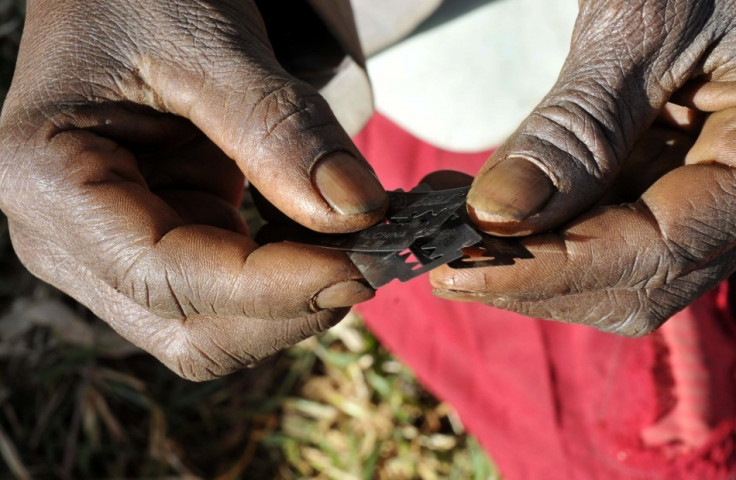FGM season begins in Kenya as 1,200 girls circumcised in Kerio Valley

At least 1,200 girls have been circumcised in Kenya's Kerio Valley as the "season" of female genital mutilation (FGM) has begun among ethnic communities. A teenager died and two others were admitted in hospital after circumcision procedures went awry.
Kenyan authorities said it was estimated that 1,200 women had undergone circumcision by Monday, 14 December, the highest number in nearly a decade. Some officials were also harassed by the villagers in the valley when they attempted to stop the prohibited practice. The circumcisions went on in several villages of the Kerio Valley, police said.
Referring to the two girls who were brought to the hospital, Benadete Nzuve, chief administrative nurse at the St Benedictine Sister's Chesong'och Mission Hospital, told a local daily: "They were brought here unconscious but they are now in stable condition. These are young girls aged 11 and 12 and in lower primary school." The parents of the girls have abandoned them at the hospital entrance fearing arrests.
Officials were already gearing up to deal with the situation as the villagers predicted December would be the "ideal season" for performing the outlawed FGM. Elders of the community usually forecast the days to carry out the procedure by sighting a specific star. Ironically, the FGMs are being carried out when the country is marking 16 Days of Activism against Gender Based Violence.
Anti-FGM activists are furious the villagers are pressing ahead with the practice despite their relentless campaign. The anti-FGM board's chairperson, Linah Kilimo, who has been visiting several villages as part of her campaign, earlier said: "The visit was preceded by the information on the ground that the locals had sighted a star and are currently gearing up for the cut. Our mission is to disapprove their claims because their acts have continued to snatch dignity and human rights from women, yet they deserve respect."
© Copyright IBTimes 2025. All rights reserved.






















